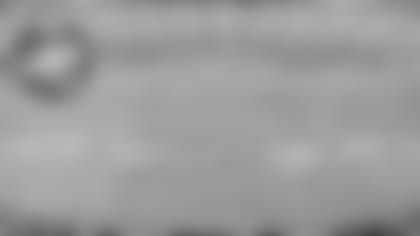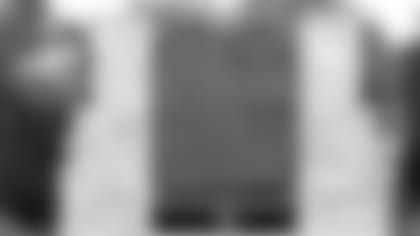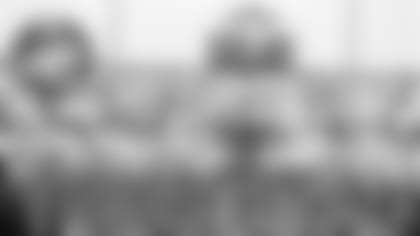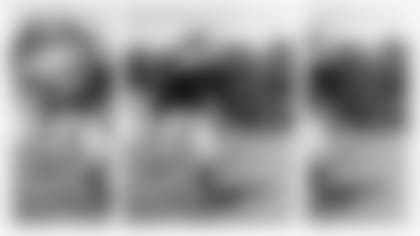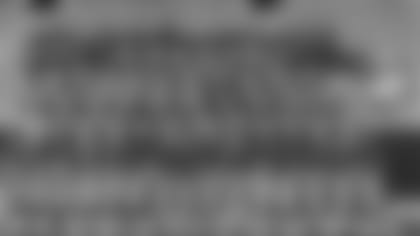Tony from Hartford, WI
Two questions: 1) During the 1970s and '80s when the Packers were doormats of the NFL and everybody wanted to blame the coaches and players, do you think the president, management staff and organizational structure were the real cause? They are the ones who hired/fired the coaches and refused to pay for a quality GM until Bob Harlan hired Ron Wolf. 2) How did Dan Devine ever win at Missouri and Notre Dame? Every article I read tells about how inept he was.
There is no simple answer to your first question. Twenty-four years of mediocrity (1968-91) can't be explained in black-and-white terms. It's an all-gray story and the fault lies everywhere.
I recall writing at some point in the 1980s that the Packers had become victims of their own inertia. The point I was trying to make was that no matter what they did, it made no difference. They were stuck in a rut and couldn't get out of it for more reasons than one could ever address in a forum such as this.
I remember having lunch with Wolf soon after he was hired. He had been a good source of mine for years when he was in Oakland and Tampa Bay. Anyway, at that lunch, he asked me what I thought about having some of the Packers' former greats serve as honorary captains for games the next season. I didn't say it, but my initial reaction was: Are you kidding me? For 13 years, while Bart Starr and Forrest Gregg were coaching, one of the most often heard complaints was that the Packers were living in the past and unable to cut ties with the Lombardi era. Now, here was Wolf, with no previous ties to the franchise, primed to make it his cross to bear.
But that's what it took for change to occur. Wolf went further than Starr or Gregg ever did to promote the Packers' rich tradition and feed off their glorious past. And he got away with it because he was an outsider. Not only that, it played a huge part in his effort to restore the Packers' image and credibility across the country.
That's why I wouldn't blame the executive committee any more than the coaches or players for how bad things got. At the same time, that's where I'd start because the committee was 0-for-4 when it came to hiring coaches.
Although Vince Lombardi might have named Phil Bengtson as his coaching successor without consulting anyone, the executive committee gave Bengtson the added title of general manager a year later. That made a bad mistake worse. Hiring Devine and Starr as combination GMs/Head Coaches were terrible mistakes. Stripping Starr of his GM title in 1980 and then not following through on the decision by hiring a credentialed GM only complicated a bad situation.
Four years later, the executive committee signed off on hiring Gregg as coach and all but paved the way for his paranoia to run amok.
Gregg admitted as much to me during an interview in his second to last season as Packers coach. In Cleveland, where he cut his teeth as a head coach, Gregg's personnel director, Bob Nussbaumer, was caught spying on him at the behest of owner Art Modell. Worse yet, Gregg felt he was undermined by a handful of veteran players there.
Still haunted by those memories almost a decade later, Gregg said it was a factor in some of the most important decisions he made in Green Bay. "You bet your sweet apple pie it was," he confessed to me in 1986.
More than a year earlier, Gregg had hired Chuck Hutchison, one of his former players and assistant coaches, to be his right-hand man in Green Bay's front office. What's more, Gregg insulated himself from some of the competent holdovers from the Devine and Starr regimes, creating schisms in the Packers' personnel department and other areas of the front office that festered for up to another eight years.
In an interview last fall, Packers radio play-by-play man Wayne Larrivee questioned me about the executive committee's interference during those dark days in the '70s and '80s. My answer was something to this effect: I know Bob Harlan has talked about that being a problem, but I don't buy it. I told Larrivee that Harlan was just being kind. The problem was incompetence, not interference, all the way up the ladder.
Just recently at a meeting, I informed Bob of what I said. He laughed and acknowledged that I was spot on.
The only coach during those two decades who might have suffered from interference was Devine. Bengston, Starr, Gregg and Lindy Infante were victims of their own flaws, not executive committee interference.
As for your second question, how did Devine win in college?
First, in 22 years at Arizona State, Missouri and Notre Dame, Devine had a .742 winning percentage. Nick Saban has been coaching 22 years now in the college ranks and his winning percentage is .781.
Keep in mind, too, Devine had a better record as Packers head coach than Starr, Gregg or Infante.
I think Devine was the worst Packers coach ever, partly because he had no respect for the franchise's place in history and cared only about protecting his own hide, but there have been players who played for both Devine and Starr who have told me they thought Devine was the better coach because he was a better judge of talent.
For all his failings in Green Bay, Devine hired some good people and let them do their job. That wasn't the case with Starr, Gregg or Infante. I'm assuming Devine did the same thing in college and that might be part of the answer.
Also, a number of people who were associated with Devine told me he was an outstanding recruiter. That could be another reason.
Willie from Hayward, WI
When Vince Lombardi left, the executive committee still seemed to stay hands off until Dan Devine made the John Hadl trade. Then it took a more active role in the day-to-day operations resulting in the 1970s and 1980s. Can you comment on the dynamic of the executive committee during those years?
More than three years before the Hadl trade, the executive committee was split, 5-2, on the Devine hiring. Dick Bourguignon and Tony Canadeo, the two members in the minority, favored Joe Paterno. They supposedly saw in Paterno some of the things they liked in Lombardi, a good friend of both men. But Dominic Olejniczak was president and a consensus builder, and his man got the job.
When I mentioned earlier that Devine might have suffered from interference, Bourguignon and Canadeo were never accepting of him. They considered him a fraud and shared those feelings with assistant coaches and players, among others. Not surprisingly, Devine's contention was the divided committee doomed him to failure, not things like him showing University of Missouri game films to professional players or diagramming Xs and Os on the blackboard with 12 players on a side.
Post-Devine, I'm not aware of the committee ever being bitterly divided on any major hire. Certainly, everybody was on board when Starr and Gregg got the jobs.
Otherwise, if there was one prohibitive dynamic to winning, it probably was the lack of turnover on the committee. It reached a point where it desperately needed new blood and an infusion of fresh ideas, but there was no age limit at the time. To put it bluntly, senility became an issue.
When the executive committee was trimmed from 13 to seven members in 1959, at Lombardi's insistence, it consisted of Olejniczak, Bourguignon, Fred Trowbridge, John Torinus, Canadeo, Jerry Atkinson and Leslie Kelly. In 1970, Clarence Renard replaced Kelly. Bourguignon died in May 1979 after serving on the committee for 23 years. The others were still serving at the dawn of the 1980s.
Let's not forget, some of these men were highly successful in the business world. Art Rooney, patriarch of the Steelers, once suggested Trowbridge might make a good NFL commissioner because of the respect he commanded in league circles. Canadeo and Atkinson served on committees that saved the Packers when they were on the verge of folding in the late 1940s and '50s.
Olejniczak probably deserved more credit that anyone in the organization for hiring Lombardi.
Bourguignon once told me Giants owner Wellington Mara tried to sell the Packers on hiring Tom Landry in 1959 and Olejniczak was the one who saw through the ruse.
"Every time he talked to Mara, he'd encourage him to hire Tom Landry, who also had applied," Bourguignon said in our interview. "(Olejniczak would) ask about Lombardi, and Mara would say, 'Landry is the man you want.'
"I remember Ole telling me, 'I think they're trying to hide (Lombardi).' He felt very strongly that he did not want to hire anyone or do anything until he talked to Vince."
Olejniczak was president and Bourguignon was vice president at the time.
Judge Robert Parins subsequently replaced both Bourguignon as vice president and Olejniczak as president and did some good things, as well.
He initiated the overhaul of the committee in the 1980s and chose some talented people as replacements. He fired Starr, something that had to be done after nine years of losing. It also was Parins' idea to generate more revenue through luxury boxes at Lambeau Field, a somewhat unpopular decision at the time.
Parins' biggest failing was that he didn't go far enough with his changes or fell short of pulling them off, like when he tried to hire Jim Finks as general manager. When Parins recommended Gregg, he should have followed through on his promise to give Dick Corrick control of personnel decisions. When Parins decided to hire Braatz, he took the first step toward splitting the jobs of GM and coach, but fell short of giving Braatz authority over Gregg and Infante.
Here's another dynamic that shouldn't be overlooked, although this is my own theory and one I've never really discussed with anyone in a position of authority.
Braatz, Parins and most of the other executive committee members were Wisconsin natives or grew up here. Parins had a razor-sharp mind. Braatz had an eye for talent. But when it came time to making decisions, they almost always took the safe and conservative route. Being a lifelong Wisconsin resident, I think that's in our DNA.
Harlan stepped out of the box when he fired Braatz and hired Wolf in the midst of the 1991 season. Making that drastic of a change at that time of year was basically unheard of in pro football. Then Wolf, swashbuckling by Wisconsin standards, took the flyer of all flyers when he traded for Brett Favre.
Here's something else Harlan told me recently that I think fits into this storyline.
During his nearly two decades as president, the two moves that drew the most criticism from fans was Wolf's trade for Favre and Ted Thompson's decision to draft Aaron Rodgers. Harlan said he was flooded with critical calls and letters after both announcements.
Vincent from Boston, MA
Love your column, but some remind me too much of the suffering we went through in the '70s and '80s. And that spurs me to ask you about the biggest mistake the Packers organization ever made: Hiring Devine. For those of us who don't know the details how in the heck did the Packers make such a fatal mistake?
I'm going to start with what I thought in the past was the most improbable snippet of this story.
Over time, members of the Packers organization from back then told me Olejniczak got his names mixed up during the search. He contacted Devine when he meant to pursue Bob Devaney, coach at the University of Nebraska.
Several people shared that story with me, but with different scenarios that I never thought added up, especially long after the fact. But your question got me digging through old interviews and files, and the most credible of my sources was personnel director Pat Peppler, who had been hired by Lombardi and was running the Packers' football operation during the coaching search.
Peppler admitted he couldn't prove the story was true, but the way he told it was more plausible than other versions I've heard. Most never explained how the seed was planted. Innocently was Peppler's explanation.
Peppler, who died three years ago, said someone simply recommended Devaney to Olejniczak and the latter got the names confused.
Devaney had just won his first national championship on New Year's Day 1971, just as the Packers were launching their search, and he did so with two starters from Green Bay, Jerry Tagge at quarterback and Jim Anderson at defensive back. Through his recruiting efforts, Devaney had become well connected with some prominent people in Green Bay, any one of whom might have mentioned his name to Olejniczak in conversation.
While Devaney went 7-0 in winning the Big Eight and 11-0-1 in winning the national title, Devine had finished 3-4 in the Big Eight and 5-6 overall. It was his first losing season in 16 years as a college coach, which made him a rather curious candidate considering the timing.
I bounced this come-to-light theory off Harlan this week and he seemed to find it just as intriguing.
Back to the search and another mind-boggling hitch.
Several members of both the Packers and Los Angeles Rams organizations from back then also told me a story about Olejniczak flying to Los Angeles in early January to interview George Allen, only days after he had been fired by the Rams. The plan was for the two to meet in or near LAX and for one of them to be paged by a made-up name. After Olejniczak landed, problems occurred when he forgot the pseudonym and the parties couldn't find each other.
The interview eventually took place, but Allen chose to take the coaching job in Washington instead and not because of the mix-up at the airport.
Joe Sullivan, a Milwaukee native who went with Allen from the Rams to Washington as an assistant general manager and coach, told me he tried to convince his boss to take the Green Bay job, but Allen's wife, Etty, objected to moving here because of our harsh winters.
I think up to that point the Packers thought they were going to get Allen and basically were back to ground zero when they didn't.
Beside Devine, the finalists in the end were assistant coach Bob Schnelker, Arizona State coach Frank Kush and Paterno. The Packers also tried to coax Notre Dame coach Ara Parseghian into applying, but he declined.
Paterno, who two years earlier had turned down an offer from Pittsburgh and would turn down other NFL inquiries in the future, was clearly interested. "There are coaching situations that are unique and this could be one of those," he said at the time. "It's a great opportunity and it's great for (our four) kids."
Why Devine over Paterno?
I was told that Devine learned soon after his interview that the Packers were also interested in Paterno and, consequently, gave them a 24- or 48-hour ultimatum and his bluff worked.
Tom from Pine River, WI
You've touched on Starr as GM ignoring the pleas of his scouts and selecting Steve Atkins and Charlie Johnson over Joe Montana. Could the fact Devine was Montana's college coach been a factor in Starr's decision?
It may have been, but there were no excuses for what happened in the Packers' draft room in 1979. Red Cochran was the Packers' Midwest scout and more contemptuous of Devine than Starr. But Cochran was sold on Montana's ability and pushed for the Packers to draft him.
What I was told not long after the fact was that after Starr arrived in the office the morning of the '79 draft he called Jerry Claiborne, a former player under Bear Bryant at Kentucky, coach at Maryland at the time and someone Starr knew and trusted. Claiborne reassured Starr that nose tackle Charlie Johnson and running back Steve Atkins could play in the NFL.
In both the second and third rounds, Cochran urged Starr to draft Montana. Rather than listen to his own scout who had followed Montana throughout his ups and downs at Notre Dame under Devine, Starr leaned on Claiborne's advice and took Johnson and Atkins instead.
Not many years later, I asked Harlan what he remembered about the draft room that year. He told me, "Red was just having a fit. He was just begging him: 'You've got to take this guy. I've been watching him for four years. All he does is win.' Then he (Cochran) just walks around the room, slams the door and he was gone."





